December 1, 2019
Addaera Research & Polls Centre: Corporate Cashflow Slowdown Observed After VAT, Consumers Resilient to Higher Cost of Living (1)
Dubai, UAE, December 2019: A survey on the awareness level of the Value Added Tax (VAT) and its impact on business sector and consumers in Dubai has revealed key indicators that evaluate the repercussions of tax implementation on the economic climate and investment prospects; as well as expenditure, savings and public capabilities of adaptation to increased cost of living.
The study was conducted by Addaera Research & Polls Centre, the first local independent public opinion survey centre in the UAE, in an effort to provide decision makers, respective institutions and consumers in Dubai with detailed statistical information on both public and business sector awareness level of VAT and the tangible impact of its implementation on tax collectors and taxpayers.
Findings were derived through a two-part field study. The first part titled “The Impact of VAT Implementation in Dubai – Business Sector Opinion Survey,” has explored opinion of employees working in the major six business sectors that make 71.7% of Dubai GDP; including industry, building & construction, wholesale & retail trade, transportation & warehousing, finance & insurance and real estate.
The business sector survey was designed and carried out utilizing the qualitative research method, where results were not counted numerically but observed in general conclusions from the elaborated answers. The survey highlighted the measures taken by companies to fulfil VAT implementation requirements and the challenges they encountered after registration in tax system.
Comparing between two polling stages, the second part of the study titled “The Impact of VAT Implementation in Dubai – Public Opinion Survey,” highlighted the difference between consumers’ awareness of VAT and their potential/actual reactions before and after VAT implementation in 2017 and a year later in 2018.
The second phase also dig into new research aspects to come up with findings on peoples’ socio-economic behavior after tax payment, particularly their consumption attitudes, savings and remittances.
The two-staged public opinion survey was conducted using the quantitative research method, where data was statistically processed to update the previous indices revealed by the first study “Awareness Level of VAT in Dubai – Potential Impact and Repercussions from Social Perspective”.
Hana Lootah, CEO of Addaera Research & Polls Centre said that the study provides credible information about the consequences of VAT implementation on society; describing businesses and consumers as objective measurable factors of both economic security and social stability.
“We believe that listening to people’s aspirations and concerns help decision makers probe general sentiment and potential directions; and consequently, formulate futuristic vision founded on more integrated and sustainable strategies. Following VAT implementation, what seemed to be negative impact was sensed by business sector, especially small and medium enterprises. The study comes as part of our efforts to explore the real impact of VAT on sales, profitability and expansion plans in order to mitigate detected challenges. Usually, findings transmit either reassuring or precautionary signals that we need to take into consideration and accordingly find the appropriate solutions,” she added.
“We launched the field study about two years ago before VAT introduction in the UAE. We applied an extended observation strategy where findings reveal the progressive evolution of public opinion; and we discovered the extent to which expectations may contradict reality. The field research relies on statistical comparison between a two-staged opinion survey that we conducted before and after VAT implementation,” Lootah elaborated.
Business Sector Opinion on the Impact of VAT
The qualitative study “The Impact of VAT in Dubai – Business Sector Opinion Survey” aimed to evaluate corporate employee’s awareness level of VAT aspects in the UAE, including their understanding of registration procedures, tax payment and refund; in addition to executive roles played by business institutions in tax collection. The study explored the impact of VAT on sales, imports and exports and marketing strategies, as well as the adjusted job roles and operational systems.
The survey consisted of individual interviews with respondents who expressed their views in answers to open-ended questions. Interviews took place from 19 March to 14 April 2019 with a sample size of 30 large, medium and small companies represented by 30 employees. The questionnaire was answered by employees working in three categories; senior management, accounting and finance department, and sales and marketing department.
New Marketing Strategies amid Sales Decline
The study findings indicated that business sector sales have declined after VAT implementation. However, respondents pointed out that sales decline is caused by a variety of factors including overall economic slowdown, increased government fees, unstable regional political situation and fuel price liberalization.
Respondents added that sales are also affected by more rational spending behavior and decreased expenditure on luxury goods. In some cases, sales decline is associated with the lack of awareness about VAT refund; specially on retail goods among tourists, and house construction among Emiratis.
The impact of VAT implementation on sales and services varied by sector activity; as respondents mentioned that sales depending on tourism, such as retail and transportation, have relatively decreased, meanwhile sales which see steady or increasing demand, such as insurance packages, are not affected.
Sales and services that are subject to zero-rated VAT, such as travel and transportation, or business activities that apply the Reverse Charge Mechanism (RCM), such as imports and exports, are not affected by VAT implementation, according to respondents. Also, sales volume in companies with small clientele and slow activities is maintained.
As sales decline required corrective response, business sector companies apply new marketing strategies to counter the negative impact of VAT, respondents pointed out. Findings showed that several companies opt to pay off full or partial additional costs generated by VAT implementation for their clients in order to stabilize prices and retain customers. Some other companies in the retail sector resort to marketing and advertising campaigns to increase their sales. Respondents also reported that several retail companies introduce new products to diversify their portfolios or launch promotions designed for seasonal events and holidays.
Cash Flow and Exports Slowdown Observed
Results indicated that VAT implementation affects cash flow in some companies, especially when transaction costs collected from clients after VAT payment to the government.
As outflow cash “including VAT value” is not immediately refunded, liquidity is disturbed and some companies face cash shortage, according to respondents.
On the other hand, exports from Dubai to some African countries declined after VAT implementation in the UAE; as African traders tend to import from China to cut costs. However, respondents explained that Dubai exports slowdown is mostly resulted by the lack of awareness about VAT refund.
Concerns Arise over Potential VAT Hike
Employees who took part in the field survey mentioned that business sector institutions have confidence in the UAE government decisions; as quick response to VAT implementation requirements is demonstrated by all companies. However, there are wide concerns over potential VAT increase from 5% to 10% or 15%, and its possible impact on sales, profits and business activities.
VAT increase would negatively affect the sector and competition-based pricing would be main target of traders, the study found.
Expansion Plans ahead of Expo 2020
Despite transaction decline in some small and micro companies, expansion plans are developed by the majority of business sector companies.
Respondents working in industry, transportation and warehousing sectors indicated that significant growth of business activities is expected during the coming period ahead of Expo 2020; as the international event is seen to be an appealing opportunity for tourist influx and increased demand on food, conference facilities, transportation, restaurants, hotels and other associated businesses.
Results showed that the performance of construction and real estate development sector is good despite concerns over potential tax increase. Respondents pointed out that the pre-Expo 2020 expansion plans and infrastructure projects, in addition to the 0%-rated VAT applied on the first residential unit sale, have flourished the sector activities.
Dubai is Leading Tourist Destination despite VAT
Results indicated that the majority of respondents are confident and optimistic about Dubai tourism sector, as tourists are becoming more aware of VAT refund.
Respondents pointed out that Dubai is still maintaining its position as a leading regional and international tourist destination with its unbeatable attractions and recreational activities. Yet, promotional campaigns are still needed to attract more tourists to traditional places and to stimulate retail activities in old markets.
High Awareness Level of VAT Aspects and Calculation Mechanism
Results showed that business sector institutions, including small, medium and large companies, are highly aware of VAT implementation in the UAE at 5%, and know that its implementation is overseen by the Federal Tax Authority.
Despite that some employees in small and medium companies believe mistakenly that VAT is a direct tax, all business sector institutions are aware of their executive role in the tax system. The role is described as “abidance by law” and “tax revenues collection”. Some respondents also find that wholesale and retail sector should be involved in “price control.”
Respondents indicated that all companies are well aware of VAT implementation scope, including taxed, 0% taxed and exempted goods and services. The majority know how to calculate VAT and add it to costs and profit margins to produce the final retail price.
With regard to the sources of VAT awareness, respondents mentioned newspapers, such as Al Bayan, Emirates Today, Khaleej Times, radio channels and social media platforms; in addition to word of mouth and casual chats among people, and information posted on the Federal Tax Authority website.
Seamless Registration Process in VAT System Praised
Most participating companies considered that registration in VAT system is obligatory, either because their business activities are tax-listed or their annual revenues hit the registration minimum limit of AED 375,000.
Respondents indicated that registration in VAT system is compulsory for all businesses; even that small and micro enterprises registration is mandatory regardless of their annual revenues.
On the other hand, registration procedures and Tax Registration Number (TRN) obtaining are described easy and seamless by the majority of respondents.
Respondents from some companies said they were able to register in VAT system internally through the Federal Tax Authority website. Meanwhile, some other companies hired service providers to complete the registration process. Fines due to delayed registration are not reported by any surveyed company.
In regard to business groups registration, respondents pointed out that it requires longer time and additional documents to register several companies under one group.
Efficient Procedures of VAT Payment and Refund
Study results demonstrated high awareness level of VAT payment and refund process among business sector institutions. All respondents pointed out that they know how to issue tax invoices, fill FTA e-forms and submit VAT forms within the specified timelines.
They added that they are well aware of penalties on VAT forms submission delays; and most employees in different departments, especially accounting and finance, recognize tax terminologies such as inputs, outputs, payments and refunds.
Many small and medium and some large companies rely on external consultant organizations to complete VAT payment and refund process. A number of large companies indicated that they have trained their employees internally to be able to manage tax requirements.
Respondents confirmed that VAT payment and refund process is efficient and easy, as most companies pay VAT amounts through exchange offices or electronic payment on FTA portal.
The majority of large companies indicated that they submit VAT forms once a month, while the majority of SMEs submit their forms every three months. A number of companies have been fined for late submission of tax forms, or due to non-payment or delayed payment.
Delay fines are accumulated on daily or weekly or monthly basis at a specified percentage, according to respondents.
Job Roles and Trainings after VAT
Results indicated that VAT implementation required some changes in job roles, specifically for accountants and financial department employees. Additional tasks included tax calculation and invoicing, and financial statement auditing. However, daily tasks of senior managers and sales and marketing specialists didn’t see significant changes.
On the other hand, results showed that accountants in some companies have previous experience in VAT implementation which they gained in workplaces outside the UAE. The majority of companies indicated that they provided their accounting and finance employees with training sessions on VAT in 2017 and 2018. Meanwhile, some other companies recruited new employees in managerial positions, or in accounting and finance departments, or hired sales personnel or cashiers to handle customer service and answer inquiries about VAT refund.
Extensive Modifications in Corporate Infrastructure
VAT implementation had tangible impact on operating systems and accounting tools in most business sector enterprises.
Respondents pointed out that many SMEs upgraded their accounting, finance and auditing software; as updates and new installations include QuickBooks, Tally ERP9, Al Ameen Accounting System, Microsoft Dynamics AX ERP Software and BUSY Business Accounting Software.
Some large enterprises utilize advanced accounting and finance software that include tax calculation tools; while a few companies rely on customized programs to meet VAT requirements. Some companies under business groups rely on sister companies to manage their VAT process.
Limited or declined business activities is revealed to be main reason for not upgrading accounting tools in a few micro and small enterprises, which use manual book-keeping and soft copy documentation for invoices.






